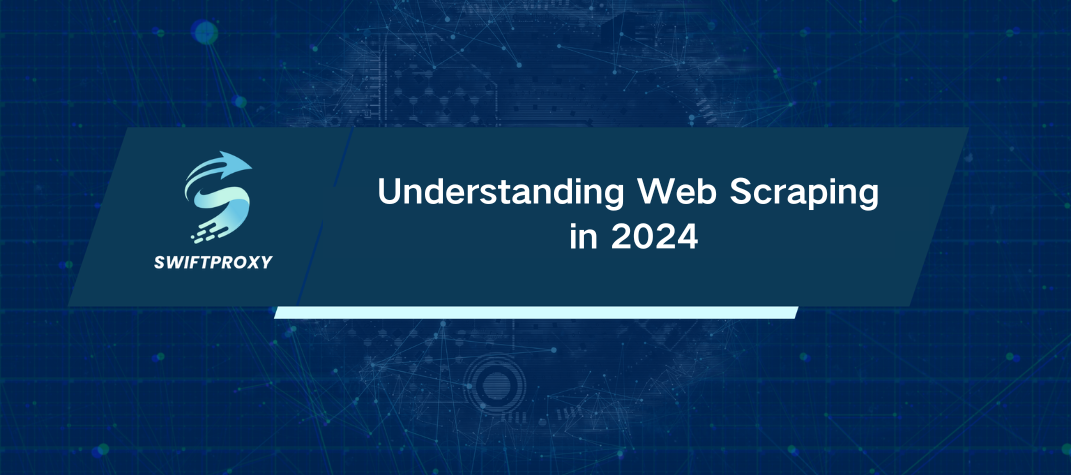Understanding Web Scraping in 2024

In a world driven by data, web scraping remains a powerful tool. But the burning question is: Is it legal in 2024? The answer? It depends. Let's dive deeper.
Web scraping, the technique of extracting data from websites, is used across industries—market research, price monitoring, and more. Automating this process can supercharge efficiency. But while scraping offers massive potential, its legality hinges on several factors.
The Legal Landscape of Web Scraping
Before you start scraping, you need to know the rules of the road. Web scraping legality depends on a few key issues:
1. Website User Agreements: Many sites explicitly prohibit automated data extraction. If you scrape despite these terms, you could be sued or fined.
2. Data Protection Laws: Regulations like the GDPR in Europe and CCPA in California strictly control how personal data can be collected and used.
3. Copyright Law: Extracting protected content without permission could land you in hot water.
4. Unfair Competition Laws: If scraping gives you an unfair edge—like gathering competitor data—watch out for legal challenges.
Knowing these factors will help you stay compliant while scraping. But that's not all. There are more nuanced challenges when you start digging deeper.
Website Terms of Use as Your First Line of Defense
Websites protect themselves with user agreements. These terms are often crafted to prevent scraping. They're not just legal roadblocks—they protect the website's performance. Excessive scraping can slow down a site, skew traffic metrics, and even strain servers.
Violating a website's terms can get you blocked, sued, or worse. Always read and follow the fine print before you scrape.
How Data Privacy Laws Affect Web Scraping
Laws like GDPR, CCPA, and CFAA aren't just legal jargon. They have teeth. Here's how they apply:
GDPR: If you're collecting personal data from European citizens, you need explicit consent. No shortcuts.
CCPA: California residents can opt out of data sales, and they have the right to know what you're collecting. If you scrape their data, be ready to comply.
CFAA: This U.S. law targets unauthorized access to computer systems. Scraping that bypasses CAPTCHAs or other security measures could be considered a violation.
Breaking these laws could result in massive fines or even legal action. So, know your legal obligations before you scrape.
Big Court Cases You Need to Know
A few court rulings have set the tone for the future of web scraping. Let's look at three important cases:
LinkedIn v. hiQ Labs (2019): The court ruled that scraping public data doesn't always violate the law, even if a website's terms say otherwise.
Ryanair v. PR Aviation (2015): In Europe, Ryanair won against a company scraping its data for price comparisons. The court emphasized the need to follow website terms.
Meta Platforms Inc. v. Bright Data Ltd. (2024): Bright Data scraped public Facebook and Instagram data without logging in, and the court sided with them. Meta's terms didn't apply since no login credentials were used.
These cases show the fine line between legal and illegal scraping. If the data is publicly available, you may be in the clear. But it's essential to consult a legal expert before proceeding.
Practical Tips to Stay Compliant
Web scraping isn't a free-for-all. Here's how to stay legal and ethical:
1. Check the Site's Terms of Use: Scraping against their rules could land you in court.
2. Follow Privacy Laws: Secure consent if necessary and ensure you're transparent in how you use the data.
3. Avoid Copyright Violations: Don't extract and republish copyrighted content without permission.
4. Throttle Your Scraping: Avoid flooding a site with requests. Overloading servers isn't just unethical—it can result in legal action.
5. Use APIs When Available: If the site offers an API, use it. It's a safer and more ethical option.
Conclusion
In 2024, web scraping can be perfectly legal, but you need to tread carefully. Follow the rules, respect privacy laws, and avoid scraping restricted data. Using proxies can help you maintain anonymity while scraping, but ensure that you comply with the relevant terms and regulations. As the legal landscape evolves, staying informed and compliant will be key to keeping your data-gathering activities on the right side of the law.

















































